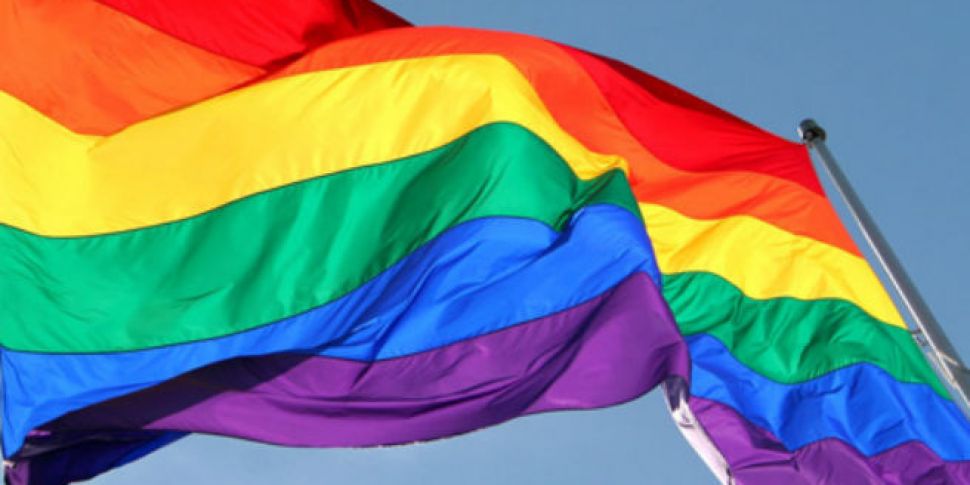It’s probably a little known fact but Ireland has sent at least one athlete to every Winter Olympics since 1992, with the exception of 1994.
The 2014 Winter Olympics which open in the Russian city of Sochi today is no different with Ireland sending a five-person team.
But as with most editions of the snow-clad version of the Summer Games, there is likely to be very little active interest emanating from our shores.
The exploits of the bobsleigh teams, ski jumpers and curlers from around the snow globe may elicit occasional glances of curiosity during the 16 day event, but overall the fascination seems limited when compared to the Summer Games.
What should garner some interest however, are the political games that will be played in an arena located away from the ice rinks and pistes.
From the moment Russian President Vladimir Putin put pen to paper last June and signed a national law banning “propaganda of non-traditional sexual relations”, the issue of LGBT rights in the former Soviet Union was thrust into international prominence.

While the wording of the law did not specifically mention homosexuality, it is the LGBT community that have been in the firing line with an increase in homophobic violence and the restrictions on freedom of expression for gay and lesbian people.
Initially there was the potential that the United States and other nations could boycott the Games. That was a stance backed by ex-NBA player John Amaechi, one of the most high profile gay athletes in the world.
In August 2013, he spoke to Off The Ball about the situation in Russia, revealing some of the horrors visited on LGBT people in the country.
"It is horrifying what is going on there. There is public humiliation of children who are perceived to be gay. These roaming gangs of thugs spend the night before urinating in bottles and then make these young people drink from it. They torture them using their knives and fists.”
According to activists, these acts of violence by right-wing groups such as Occupy Gerontophilia and Occupy Paedophilia have spiked significantly since the passing of the law.
Amid that backdrop, Amaechi told us that athletes should consider boycotting Sochi, saying: “I can't weigh on one hand my desire to compete against the humiliation, torture and even death of a child."
But the day before, we spoke to the co-founder of Outsports, the “world’s leading gay-sports publication”. Cyd Ziegler told Off The Ball that a boycott would “punish the wrong people” and pointed that many world leaders such as Barack Obama had signalled their disapproval at Russia’s stance. But he also added that boycotts have no history of success within the sporting sphere.
“No boycott of the Olympics has ever accomplished anything. You think a failure of the United States and other Western countries to boycott the 1936 Olympics somehow contributed to the start of World War II? There is a wall in Berlin to tell you there is no compelling reason.”
While athletes have chosen to compete, there will be a boycott of sorts at Sochi however. For the first time since 2000, a sitting US President, Vice-President or First Lady will not be part of the delegation sent to the Olympic opening ceremony.
Instead Barack Obama named a delegation which significantly includes three members of the LGBT community. Tennis legend Billie-Jean King has been outspoken on gay rights issues, and drawing parallels with the Black Power salute at the 1968 Olympics, in September she called for a “John Carlos” moment in Sochi.

The original John Carlos moment
She will be joined in the Russian city for the three-day visit by openly lesbian ice-hockey star Caitlin Cahow and figure skater Brian Boitano who came out as gay just days after being named in the delegation. Indeed the latter admitted that he had not intended to reveal his sexuality until he was appointed by Obama, adding that: "The president is kind of saying to Russia that as a strong country, we believe in [LGBT rights] and if you don't follow along, we will leave you behind in this thought process."
But last month Dave Zirin, the sports editor of The Nation and author of The John Carlos Story: The Sports Moment That Changed the World, told Off The Ball that he suspects that the US government has an ulterior motive when it comes to highlighting LGBT rights in Russia.
Characterizing the naming of an LGBT-focused delegation as a “thumb in the eye to Russia”, Zirin believes that the Obama administration is only making an example of Russia on this issue as part of a wider political game which takes in flashpoints such as Syria. As an example Zirin used the US’ response to a law recriminalizing homosexuality in India recently which elicited a far more muted response.
Zirin said: "It shows that it isn't just about LGBT rights from the perspective of the Obama White House. This is about a thumb in the eye to Russia which has been challenging the United States on a whole host of issues around the globe. It is fair to say that LGBT rights is like a wedge issue that allows the United States to paint Russia in a bad light."
In addition, delegates such as Billie-Jean King are limited in terms of what they can do. While protesters can only demonstrate “20 kilometres from the arenas” as Irish distance runner Ciaran O’Lionaird said on Off The Ball recently, International Olympic Committee rules clamp down on political demonstrations.
Rule 50 of the IOC charter states that ''No kind of demonstration or political, religious or racial propaganda is permitted in any Olympic sites, venues or other areas.''

Billie Jean King in 1966 ©INPHO/Allsport
That would include waving rainbow flags and carrying or wearing symbols which promote LGBT rights. Soon after her appointment, King admitted to the Associated Press that, ''Before I knew about Rule 50, I thought it would be sweet to wave some flags or something. But they can get in big trouble and have their medal taken away and also be sent home.''
But what happens when lights are turned off and the doors close as the last international athletes and diplomats exit Russia?
Zirin feared that any open US intervention on the issue of LGBT during the Games could lead to renewed repression against activists and sexual minorities in Russia following the Olympics.
It is an especially delicate situation given that a survey by Russia’s main polling institution suggests that almost 90 per cent of respondents agree with the new law – something which the Russian regime has been using to justify its stance.
Then again the All-Russian Center for the Study of Public Opinion - which conducted the poll – is state-owned and part of the Ministry of Labour and Social Affairs which casts doubt on its impartiality.
Either way, if last year’s World Athletics Championships in Moscow are anything to go by (two Swedish high jumper painted their nails in rainbow colours), a John Carlos moment is possible at the Winter Games - especially if athletes disregard both the Russian law and IOC rules and “speak out on issues like Sochi” as O’Lionaird called for on Off The Ball.









